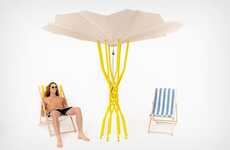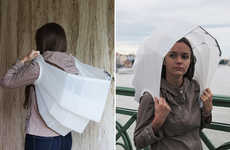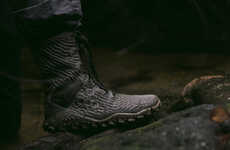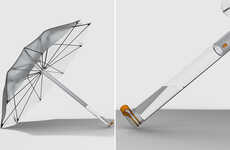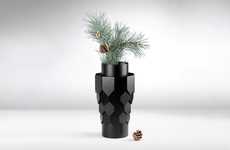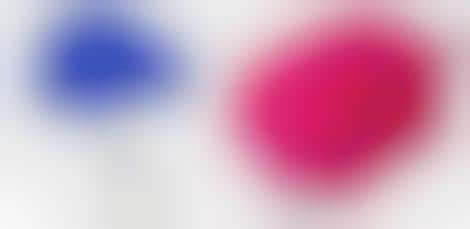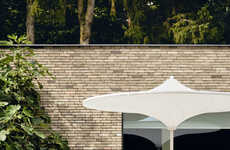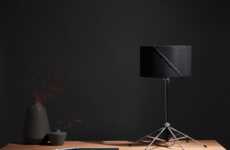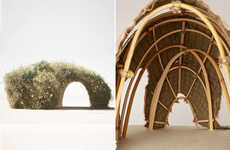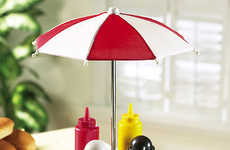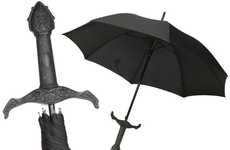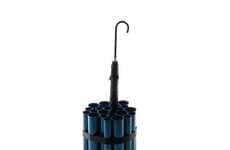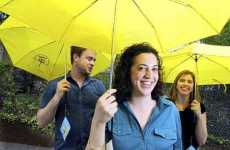
The Parashell
Alex Covert — July 11, 2008 — Art & Design
References: ddi-parashell & pingmag.jp
Bio-Mimicry. It's a word for when humans make something based on the forms and movements found in nature. Tokyo-based John Di Cesare designed the Parashell umbrellas using bio-mimicry. His designs resemble seashells, a shape that protects mollusks and now, humans.
Implications - The natural world is full of structures and shapes that have developed over the course of natural selection. By tapping into what mother nature has already created, designers can replicate the beauty of nature in products that also provide the most optimal functionality. With people becoming more aware of the environment, paying homage to nature's designs will definitely help companies produce items that appeal to the market of earth-loving individuals.
Implications - The natural world is full of structures and shapes that have developed over the course of natural selection. By tapping into what mother nature has already created, designers can replicate the beauty of nature in products that also provide the most optimal functionality. With people becoming more aware of the environment, paying homage to nature's designs will definitely help companies produce items that appeal to the market of earth-loving individuals.
Trend Themes
1. Bio-mimicry - Designers are increasingly using bio-mimicry to create products that replicate the beauty and functionality of nature.
Industry Implications
1. Product Design - Incorporating bio-mimicry into product design can lead to innovative and environmentally-friendly solutions.
2. Fashion - Fashion designers can draw inspiration from the shapes and structures found in nature to create unique and eye-catching designs.
3. Architecture - Architects can utilize bio-mimicry to design buildings that are not only aesthetically pleasing but also energy-efficient and sustainable.
2.3
Score
Popularity
Activity
Freshness

